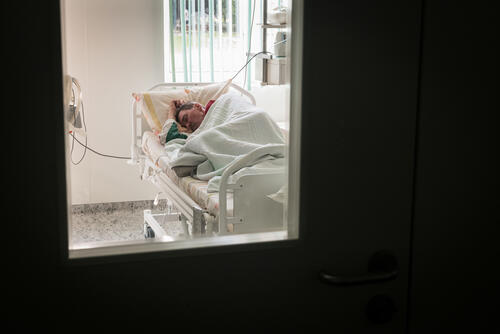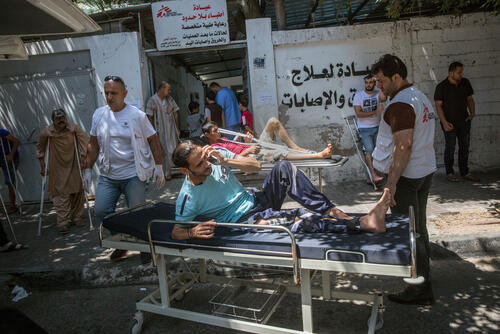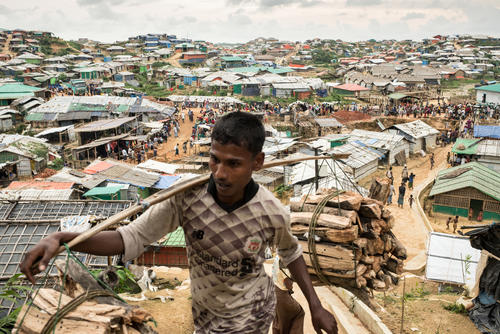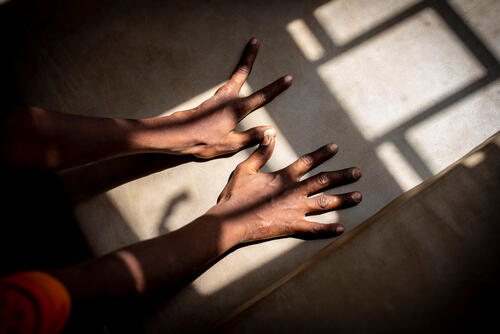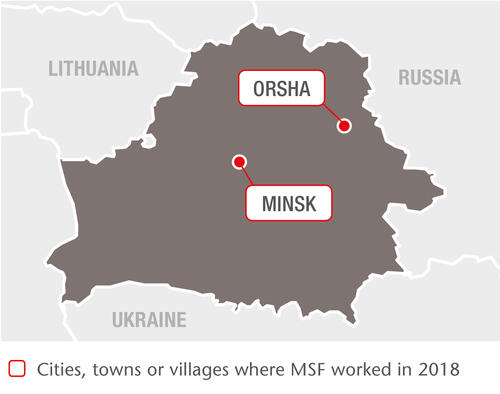
41
41
Belarus is listed as a high-burden country for MDR-TB in the World Health Organization’s 2018 Global Tuberculosis Report.
In 2018, we supported the Ministry of Health in three TB facilities: in Minsk; in City TB hospital in Volkovichi, Minsk region; and in Orsha, where we had a team providing drug-resistant TB (DR-TB) treatment for 22 inmates of a penal colony. Six of these patients were co-infected with hepatitis C and were given new drugs that have a 95 per cent cure rate.
The focus of our programme in Minsk is on supporting adherence to treatment for patients with alcohol use problems and marginalised groups.
Using a patient-centred approach, our multidisciplinary team provided psychosocial assistance to support adherence to the entire course of treatment, conducting 2,225 consultations in 2018.
By the end of the year, 59 patients with DR-TB were on treatment with new regimens containing bedaquiline and/or delamanid as part of an endTB observational study.Conducted in partnership with Partners In Health and Interactive Research and Development in more than 17 countries, the endTB partnership aims to find shorter, less toxic and more effective treatments for MDR-TB. With 41 new patients enrolled in 2018, the project reached the national target of 122 patients recruited since August 2015.
In 2018, we also started recruiting Belarusian patients for the TB PRACTECAL trial, which explores short, innovative MDR-TB treatment regimens; 20 people had been recruited by the end of the year.
Alyona and Vadim's story
Vadim, 29, and Alyona, 19, met when they were receiving TB treatment in Minsk. They live together now in a rented apartment and continue their treatment as outpatients. They go to the dispensary together every day to take their medications.
“We are still on treatment and we have to take odd jobs, we can’t choose jobs that we like,” says Vadim, “so I’m constantly looking for a job. But a year ago we were both in hospital, and now we live together, and we have a better standard of living than our parents. You should never give up.”
Alyona’s parents had TB. Her mother got cured, but her father died. He was drinking and neglecting his treatment. When he finally made up his mind to get cured, there were no drugs that could help him.
“When I heard about my diagnosis, I didn’t cry – I had no reaction at all. I didn’t understand it, I just felt hollow inside,” says Alyona. “I knew I could get infected, but I didn't care – I didn’t want to stay away from my mum for six months.”
Vadim is from Baranovichi, where he began his TB treatment. He was diagnosed with TB and diabetes at the same time.
“When I found out I had drug-resistant TB, I thought it was the end. I was told there was a hospital in Minsk where new drugs are tested. I thought: ‘If it’s so hard and scary now, Minsk is going to be torture,’ but I had no choice. It turned out that there were lots of young people in the hospital in Minsk, so life there was completely different.
“Someone told me it was a gift that I got ill. God lets you look at yourself from the outside. As I look back at some moments, I understand that it was a lesson for me,” Vadim reflects.




